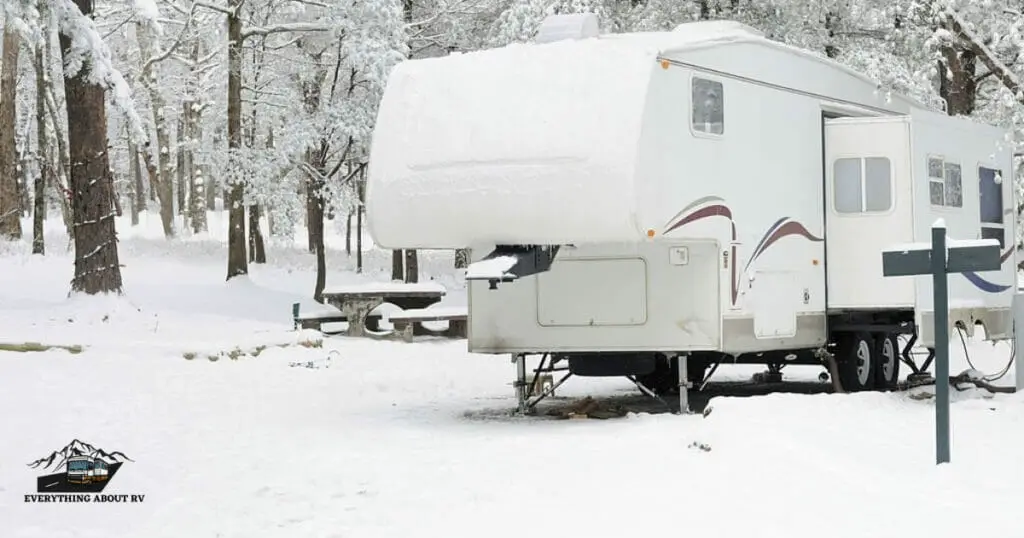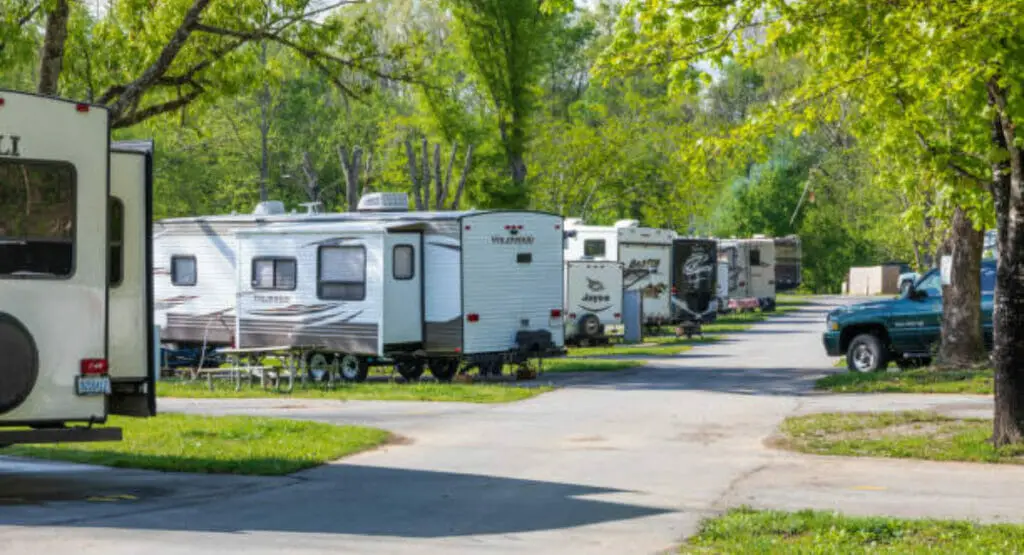As an RV owner, it is crucial to prioritize safety and be aware of any potential risks or issues that may arise. One such concern is the interaction between RV antifreeze and propane alarms. In this blog post, we will delve into the question of whether RV antifreeze can cause the propane alarm to go off in an RV. Understanding this relationship is vital for maintaining a safe and secure RV environment. By exploring the factors at play and providing preventive measures, we aim to equip RV owners with the knowledge needed to ensure their safety and peace of mind while using RV antifreeze.
I. Understanding RV Antifreeze and Propane Alarms
A. What is RV antifreeze?
RV antifreeze, often known as non-toxic antifreeze, is a specifically prepared liquid meant to preserve the plumbing system of an RV during freezing weather. It contains chemicals that lower the freezing point of water, protecting the pipes and fixtures from freezing and potentially exploding. RV antifreeze is often pink or light red in color and is used in potable water systems.
B. How do propane alarms function in RVs?
Propane alarms in RVs are meant to detect the presence of propane gas, which can be deadly if there is a leak. These alarms are equipped with sensors that continuously check the air for propane gas. If the sensor detects propane levels above a specified threshold, it generates an auditory and visual alarm to inform the occupants of the RV. Propane alarms are vital for RV safety, as propane gas leaks can lead to fires or explosions.
C. Can Rv Antifreeze Cause Propane Alarm Go Off In Rv? Exploring the possibility
While RV antifreeze is typically safe to use, it is exceedingly rare to immediately trigger a propane alarm. Propane alarms are precisely calibrated to detect propane gas, not the compounds present in antifreeze. The components of RV antifreeze, such as ethylene or propylene glycol, do not create propane gas or interfere with the operation of the propane alarm system.
D. Factors that may trigger false alarms in propane alarm systems.
Although RV antifreeze itself is unlikely to trigger a propane alarm, there are circumstances that can potentially generate false alarms:
1. Chemical odors:
Some antifreeze brands or types may create chemical aromas that can activate sensitive propane alarms. These odors, although not indicative of a propane leak, may confuse the alarm system and result in a false signal.
2. Volatile organic compounds (VOCs):
Certain RV antifreeze products may include volatile organic compounds that, if they reach the propane sensor, might potentially activate a false warning. It is necessary to analyze the composition of the antifreeze and avoid those with high VOC concentrations.
3. Proximity to the propane system:
Storing RV antifreeze containers in close proximity to the propane system can lead to scents being detected by the propane alarm. To decrease the possibility of false alarms, it is best to store antifreeze containers away from the propane system.
By understanding the properties of RV antifreeze, the operation of propane alarms, and the various reasons that may trigger false alarms, RV owners can make informed decisions and take essential actions to maintain a safe and reliable RV environment.
II. Preventing False Alarms from RV Antifreeze
Step 1: Ensure adequate ventilation.
Proper ventilation is critical for maintaining air quality inside the RV and preventing odor buildup. Make sure your RV has enough ventilation, including roof vents and windows, so that fresh air can circulate. Good airflow will aid in the dissipation of any potential chemical odors from RV antifreeze, lowering the risk of false alarms.
Step 2: Keep RV antifreeze separate from the propane system.
Store RV antifreeze containers in a separate compartment or storage area away from the propane system to reduce the possibility of odors from RV antifreeze reaching the propane alarm. This physical separation will aid in the prevention of chemical interactions or accidental exposure, which could result in false alarms.
Step 3: Inspect the propane system for leaks and ensure its integrity.
Inspect your propane system on a regular basis for leaks or damage. Check for gas leaks with visual inspections and a propane leak detector. Make certain that all connections are secure and free of leaks. Maintaining the propane system’s integrity reduces the risk of false alarms and ensures the overall safety of your RV.
Step 4: Only use a small amount of RV antifreeze and flush the system.
Follow the manufacturer’s instructions and use RV antifreeze sparingly. Antifreeze overuse can increase the likelihood of its odor reaching the propane alarm. Flush the plumbing system with clean water after the winter season or whenever the antifreeze is no longer required. This flushing procedure will help to eliminate any lingering odors and reduce the possibility of false alarms.
Step 5: Think about other antifreeze options.
Consider using alternative antifreeze if you are concerned about potential interactions between RV antifreeze and the propane alarm system. There are RV-specific antifreeze products available that are less likely to emit strong odors or contain volatile organic compounds (VOCs). Investigate and select antifreeze brands that emphasize low-odor and VOC-free formulations.
RV owners can reduce the risk of false alarms caused by RV antifreeze by following these precautions. While using antifreeze during freezing temperatures, ensuring proper ventilation, storing antifreeze away from the propane system, checking for leaks, using antifreeze sparingly, and considering alternative options will help maintain a safe and reliable RV environment.
Conclusion
Can Rv antifreeze cause propane alarm go off in Rv? maintaining RV safety and eliminating false alarms are vital for RV owners. While RV antifreeze is unlikely to directly trigger a propane alarm, it is crucial to be aware of other factors that may produce false alerts, such as chemical scents and VOCs. By ensuring sufficient ventilation, storing antifreeze away from the propane system, checking for leaks, using antifreeze sparingly, and evaluating alternate solutions, RV owners may dramatically reduce the chance of false alarms. Prioritizing RV safety not only protects occupants and goods but also provides peace of mind during excursions. By following the recommended preventive measures, RV owners can enjoy their excursions while assuring a safe and secure RV environment.



